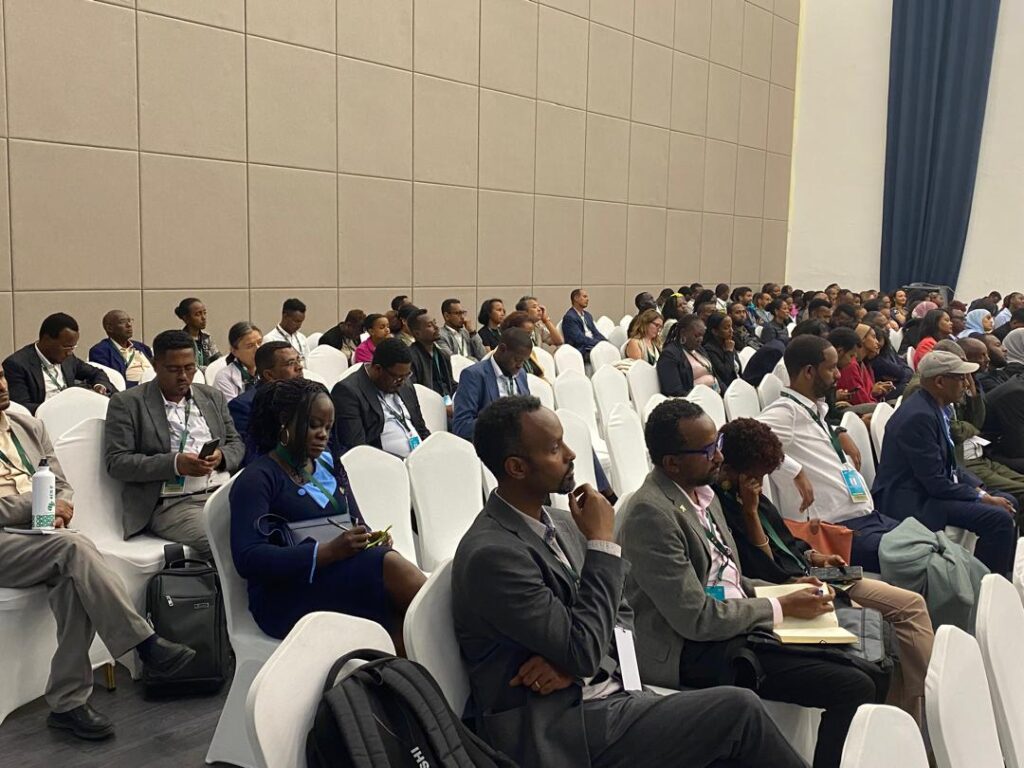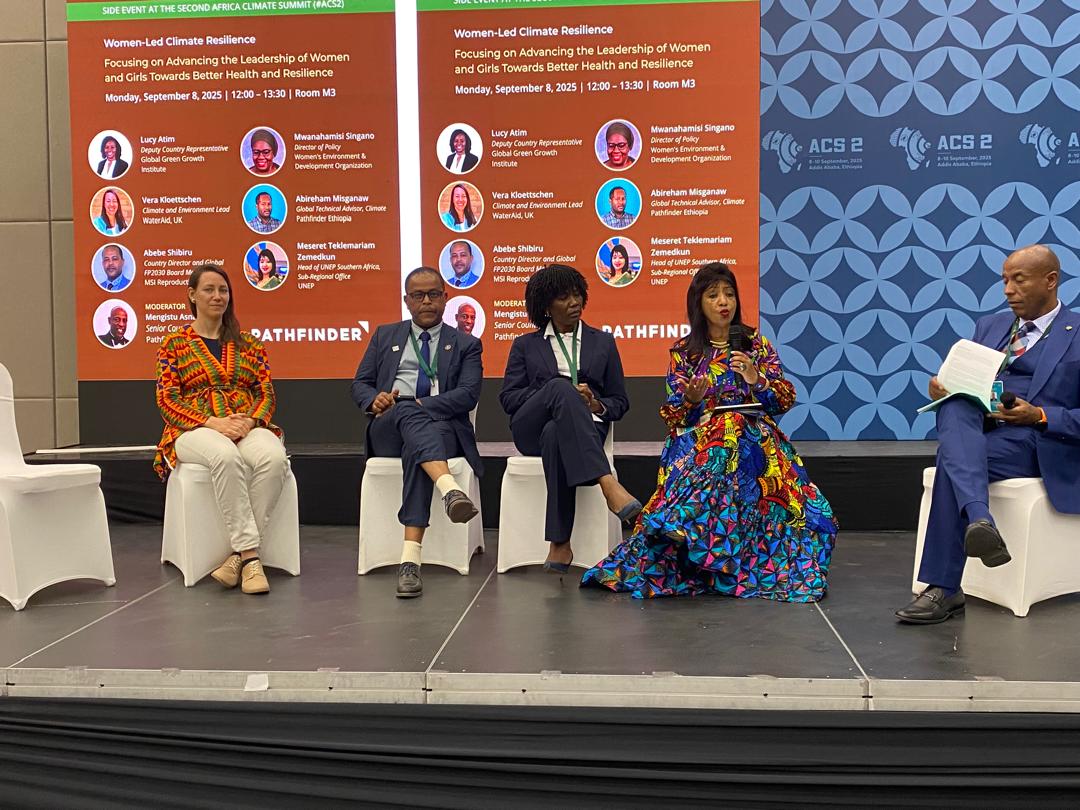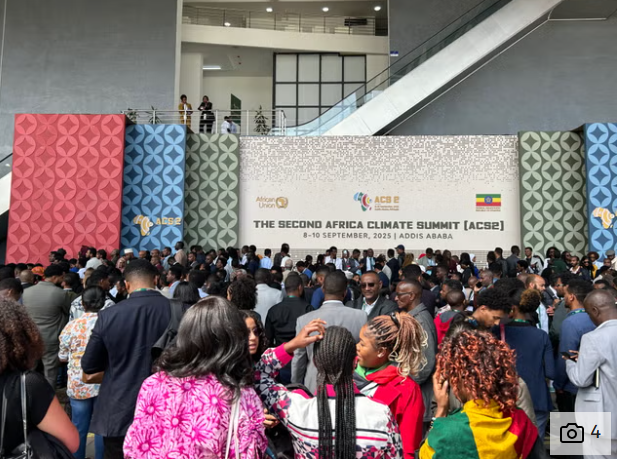Stakeholders at the ongoing African Climate Summit in Addis Ababa have emphasized the central role of women and girls in addressing the climate crisis, calling for their deliberate inclusion and leadership in building a resilient Africa.
The discussion took place at a side event focused on women-led climate resilience, themed “Advancing the Leadership of Women and Girls Towards Better Health and Climate Resilience.”
Experts and advocates emphasized that empowering women is essential for achieving sustainable development, climate adaptation, and improved public health outcomes.
The stakeholders agreed that meaningful gender inclusion is not only a matter of equity but a strategic investment in the continent’s sustainable future.
Speaking at the event, Vera Kloettschen, Climate and Environment Lead at WaterAid UK, underlined the importance of empowering young women climate advocates.
“We must create enabling environments where women can thrive. Instead of focusing on vulnerability, we should recognize their capabilities. Gender empowerment is the pathway to building climate resilience in water, sanitation, and hygiene (WASH),” she said.
Kloettschen emphasized that improving access to water and sanitation facilities reduces the risk of infections and strengthens community resilience, particularly in regions vulnerable to climate change.
In his remarks, Abebe Shiibiru, Country Director of Global Green Growth Initiative, stated that bringing women together and enabling them to take charge is essential.
“Not having women in leadership is a missed opportunity. Women are the core of society; investing in them is investing in nations.”
Also speaking on the panel, Lucy Atim, Deputy Country Representative of the Global Green Growth Initiative, highlighted the transformative impact of women in decision-making processes related to environmental issues.
“When women are involved, there is a significant difference overall. Women currently leading climate advocacy need to be supported and positioned to contribute meaningfully,” Atim said.
Meseret Teklemariam Zemedkun, Head of UNEP Southern Africa Sub-Regional Office, noted persistent gaps in policy and implementation at the grassroots level.
She called for increased inclusion of women in local decision-making to ensure climate interventions reach the most vulnerable populations.

The session concluded with a unanimous call for governments, development partners, and civil society to intentionally place women and girls at the forefront of Africa’s climate strategies.
By Dare Akogun, Addis Ababa





